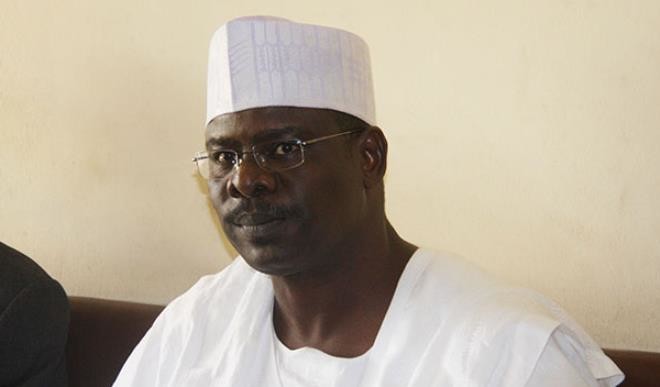The Senate has rejected court’s ruling to lift the six-month suspension slammed on Senator Mohammed Ali Ndume representing Borno South Senatorial District.
The Federal High Court in Abuja presided over by Justice Babatunde Quadri had last Friday ordered the Senate to reinstate Senator Ndume and pay his outstanding entitlements.
The Upper legislative chamber, through its lawyer, Chief Mike Ozekhome, SAN, said it disagreed with the verdict of the Federal High Court, Abuja, which not only voided Ndume’s suspension from the Senate since March 30, but also directed that he be paid all his outstanding salaries and allowances.
Consequently, it has asked the Abuja Division of the Court of Appeal to set-aside the judgment of the court, which according to the Senate, lacks the jurisdiction to entertain the suit Ndume filed to challenge his suspension.
Ndume had in his suit marked FHC/ABJ/CS/551/2017, prayed the court to declare his suspension for 90 days as a Senator in the service of the Senate of the Federal Republic of Nigeria via a letter dated 30th March, 2017, “for expressing as a matter of privilege the insinuations/allegations made online and National Newspapers that the invitation of the Comptroller-General of Customs was informed by seizure of the Bullet Proof SUV vehicle belonging to the Senate President purportedly cleared with fake National Assembly documents and the alleged First Degree saga of Senator Dino Melaye, is a violation of his fundamental right to fair hearing and freedom of expression as guaranteed by sections 36 and 39 of the extant Constitution of the Federal Republic of Nigeria 1999 (as amended) and Articles 7(1) and 9(2) of the African Charter on Human and Peoples’ Rights (Ratification and Enforcement) Act CAP A9 Laws of the Federation of Nigeria, 2004.
However, in its appeal, the Senate maintained that the Plaintiff wrongly joined several causes of action in his Originating Summons.
It argued that an action for the enforcement of fundamental rights to fair hearing could only be brought against a court or a tribunal, established by law as held by the Supreme Court in several current cases, and not against Committee of a legislative body.
Besides, the appellants contended that by the provisions of sections 3 and 30 of the Legislative Houses (Powers and Privileges) Act, the high court lacked requisite jurisdiction to hear the suit of the Plaintiff.
It has therefore urged the appellate court to stay execution of the judgment pending hearing and determination of the appeal.

